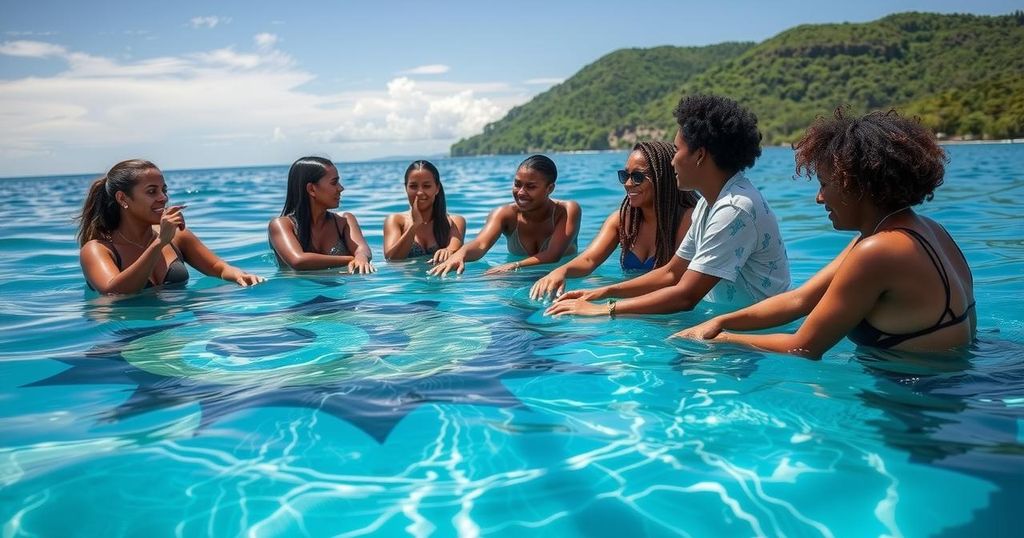Seychelles Advances Blue Economy Initiatives Through Training in Ocean Governance

Seychelles strengthens its Blue Economy agenda through training in maritime boundary delimitation and marine biodiversity conservation. Minister Jean-Francois Ferrari highlighted the importance of building expertise in these areas amid the country’s extensive Exclusive Economic Zone. Recent workshops culminated in certification for participants, bolstering Seychelles’ leadership in ocean governance and its commitment to international treaties like the BBNJ Agreement.
Seychelles is enhancing its leadership in ocean governance through targeted training on maritime boundary delimitation and marine biodiversity conservation, integral facets of the Blue Economy. During a session with participants, Minister of Fisheries and Blue Economy, Jean-Francois Ferrari, emphasized the significance of capacity building in these areas, given that Seychelles possesses an extensive Exclusive Economic Zone (EEZ) spanning 1.4 million square kilometers. He articulated that such training goes beyond the acquisition of technical skills; it fosters a community of professionals committed to sustainable ocean management.
The Department of Blue Economy recently held two workshops — the Biodiversity Beyond National Jurisdiction (BBNJ) and the Maritime Boundary Delimitation workshop. These events culminated in the presentation of certificates to 38 participants at the Seychelles Institute of Education. The workshops are designed to enhance national capacities essential for effective marine governance. Furthermore, Seychelles has successfully marked 90% of its maritime boundaries, with ongoing negotiations regarding the remaining unmarked area adjacent to Madagascar. This diplomatic endeavor will benefit from the expertise acquired through training.
The BBNJ Agreement represents a critical milestone in global marine conservation, focusing on the sustainable use of biodiversity in areas beyond national jurisdictions. By being the fourth nation worldwide and the first in Africa to ratify this treaty, Seychelles strengthens its commitment to international marine governance. The training prepared over 20 participants, including senior officials and marine leaders, with vital knowledge pertaining to the treaty’s significance.
Seychelles’ dedication to enhancing capabilities in maritime boundary delimitation and marine biodiversity conservation illustrates its proactive stance in safeguarding its oceanic resources. This commitment is crucial for a sustainable economic model that underpins vital sectors such as fisheries, tourism, and renewable energy, ensuring that future generations inherit a well-managed marine environment.
The Blue Economy framework focuses on sustainable management of ocean resources, emphasizing economic growth alongside environmental conservation. For island nations like Seychelles, where marine resources are pivotal to the economy, strengthening expertise in maritime boundary delimitation and biodiversity conservation is fundamental. Training programs aim to empower professionals in these vital areas, equipping them with the skills needed to navigate complex ocean governance challenges and enhance Seychelles’ role in international maritime discussions.
In conclusion, Seychelles is making significant strides in promoting the Blue Economy by investing in training focused on maritime boundary delimitation and marine biodiversity conservation. Through workshops designed to enhance local expertise, Seychelles aims to solidify its role in global ocean governance. This proactive approach not only safeguards its vast marine resources but also contributes to sustainable economic development essential for future generations.
Original Source: www.seychellesnewsagency.com





